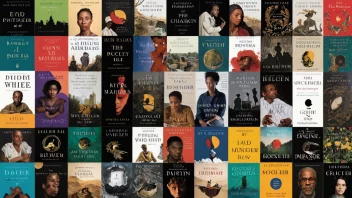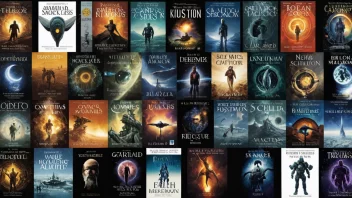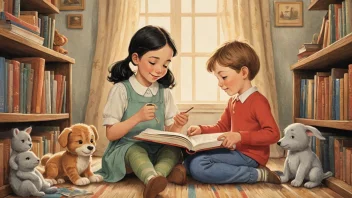Loss is a universal experience that transcends cultures, ages, and backgrounds. In contemporary fiction, authors grapple with the complexity of this theme, exploring how it shapes identities, relationships, and the human experience. Through various narratives, readers are invited to reflect on their own experiences with loss, making these stories not just tales of sorrow, but also profound explorations of resilience, memory, and healing. This article delves into the multifaceted representation of loss in contemporary literature, highlighting notable works and authors who have masterfully portrayed this complex theme.
Understanding Loss in Different Contexts
Loss can manifest in numerous forms, whether it be the death of a loved one, the end of a relationship, or even the loss of an ideal. Contemporary fiction often tackles these different aspects of loss, offering readers diverse perspectives on the emotional and psychological ramifications involved. Authors approach loss with sensitivity, creating characters who struggle to navigate their grief while also exploring the broader implications it has on their lives.
The Death of a Loved One
One of the most poignant representations of loss is the death of a loved one. In novels like "A Man Called Ove" by Fredrik Backman, readers witness the profound impact that the death of a spouse can have on an individual's life. Ove's journey through grief illustrates how loss can lead to isolation, but also how connection with others can facilitate healing. Similarly, in "The Light We Lost" by Jill Santopolo, the protagonist grapples with the death of her first love, showcasing the lingering effects of loss on her future relationships and choices.
Loss of Relationships
Loss is not only about death; it can also encompass the end of relationships. In contemporary fiction, many authors explore the emotional turmoil of breakups and separations. For instance, in "Normal People" by Sally Rooney, the evolving relationship between the main characters, Connell and Marianne, is marked by moments of connection and estrangement. The narrative captures the ache of lost intimacy and the struggle to reconcile past love with present realities.
The Psychological Impact of Loss
The psychological effects of loss are a central theme in contemporary literature. Authors often delve into the mental health challenges that accompany grief, illustrating the struggle to find meaning in the aftermath of a loss. In "The Year of Magical Thinking" by Joan Didion, the author presents a raw and unfiltered account of her grief following the sudden death of her husband. Didion's reflection on her thoughts and feelings offers an intimate look at the disorienting nature of loss and the ways it can alter one's perception of reality.
Resilience and Healing
While loss is often depicted as a source of pain, many contemporary works also explore the potential for resilience and healing. In "The Book Thief" by Markus Zusak, the story unfolds during World War II and illustrates how characters cope with the loss of loved ones and home. The protagonist, Liesel, finds solace in stealing books and sharing stories, highlighting the power of literature as a means of navigating grief. This theme of finding beauty and hope amidst sorrow resonates deeply, reminding readers that healing is a journey that often involves revisiting memories and embracing the past.
Contemporary Voices on Loss
Many contemporary authors have made it their mission to depict loss authentically. Khaled Hosseini, in his novel "The Kite Runner," explores the loss of childhood innocence and the guilt that accompanies betrayal and redemption. His characters face the consequences of their actions, illustrating how loss can lead to a profound understanding of oneself and others. Similarly, in "Little Fires Everywhere" by Celeste Ng, the theme of loss extends beyond individual experiences to encompass societal and cultural implications, shedding light on how loss shapes community dynamics.
Young Adult Literature and Loss
The theme of loss is also prevalent in young adult literature, where it resonates with a younger audience navigating the complexities of growing up. In "The Fault in Our Stars" by John Green, the protagonists grapple with terminal illness and the fear of losing loved ones. Green's portrayal of loss invites young readers to confront their own fears and uncertainties, fostering empathy and understanding. Such narratives play a crucial role in helping adolescents navigate their emotions, providing a safe space to explore difficult themes.
Conclusion
The theme of loss in contemporary fiction is rich and varied, offering readers a profound exploration of the human experience. Through diverse narratives and characters, authors illuminate the complexities of grief, resilience, and healing. From the death of a loved one to the end of relationships, contemporary literature captures the myriad ways in which loss shapes lives and identities. By engaging with these stories, readers are not only invited to confront their own experiences with loss but also to find solace in the shared journey of healing and connection that literature provides.






